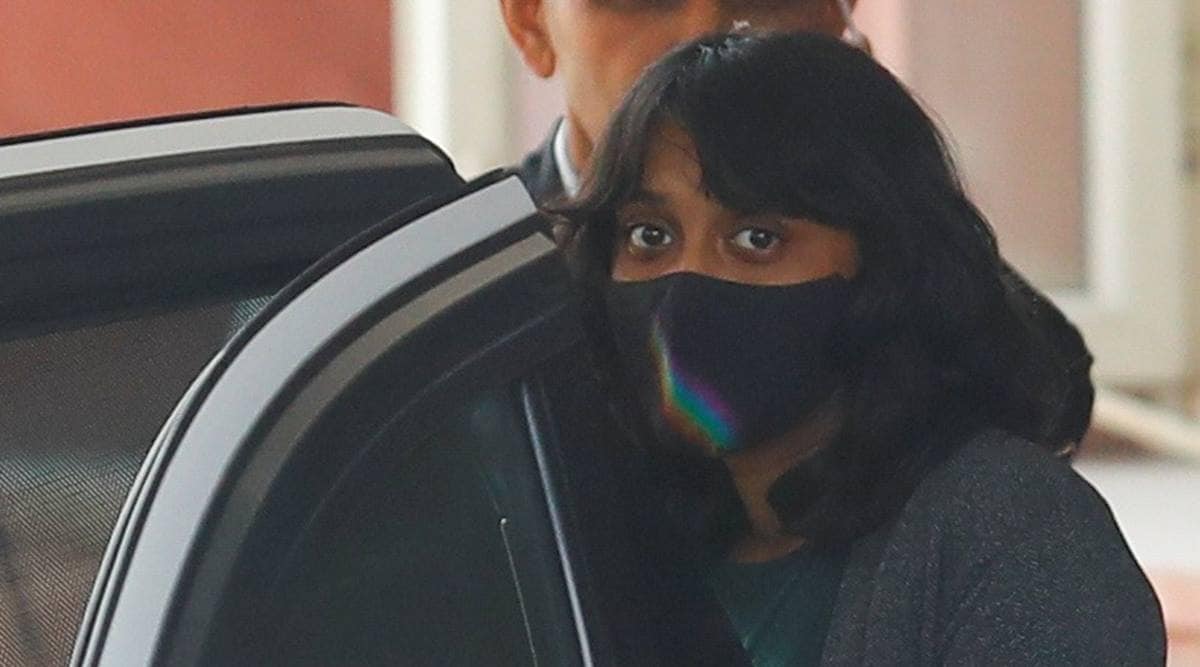It presents an educated and articulate woman to contest women’s freedom.
Written by Jyothi S
International Women’s day is approaching. But do women in the country have a lot to cheer about?
A success story in the Indian Me-Too movement through the Priya Ramani verdict will boost the morale of many and give them courage to share their stories. Bail granted to Disha Ravi on sedition charges will encourage young girls to fight for the causes close to their hearts. However, the upsurge of Hindutva politics is a matter of concern for women’s rights. Instead of fighting for their basic human rights, women of this country are sadly divided into pro-government and anti-establishment voices. It is time to ask if the increasing space for religion in public discourse complementing women’s empowerment or pushing them backwards?
Fundamentally, all major organised religions have not given equal rights to women. As these scriptures were written by men, regulating women was essentially part of their endeavour. Societies in almost every part of the world have constantly monitored any drift from established notions and punished those who questioned the system. As the fields of education and employment opened up, women’s experiences became part of the world outside the home. However, the major apprehension for women today is that will all the hard work, sweat and blood as well as strenuous efforts put up by women activists go waste now with increased vigilantism?
With women’s day approaching we need to debate if the current political, social and cultural climate, dominated by fundamentalist forces, is conducive for free thinking women? Hindutva, like all religions, advocates a patriarchal system. Here, a woman’s role as a torchbearer of culture and tradition is glorified. The burden of preserving traditions but without the freedom to think and act on her own is the hallmark of such a value system. As a result, whatever little has been gained in terms of women’s freedom — thinking, acting, speaking, dressing or living according to her inner voice — is questioned.
On the one hand, the government says, “Beti Bachao Beti Padao”, it curbs their freedom of expression, as in the case of Disha Ravi, on the other. Reports of restrictive dress codes on women are frequent. During communal riots, women are the first targets of mob violence.
Another interesting phenomenon is with respect to the demand for 33 per cent reservation for women in politics. The question here is, do we need votaries of Hindutva, including those who have extremely regressive views, as representatives of modern, independent women — in case the women’s quota receives Parliament’s sanction? The possibilities of women with a voice of their own as our representatives are dwindling.
In the context of “love jihad”, in the name of “safeguarding” Hindu women, freedom of free movement and choice are severely curtailed. In the process, a woman’s freedom to own her body and mind are taken away. An empowered and independent woman is always a threat to the regressive establishment.
Therefore, efforts are made to typecast a role model for women — ones who are educated, vocal and articulate but strongly immersed in Sanatana Dharma. They claim to represent all women in public spaces, but strongly support fundamentalist values even if they are against the basic dignity of women.
Women are trained as volunteers to spread Hindutva’s core values. For instance, when women activists attempted to enter the Sabarimala temple based on court verdict, there were women who quoted religious texts and defended the temple ban in public. In this way, women are unleashed against women and the protection of basic women’s rights gets imperilled. Women are made to believe that Hinduism has placed women in the position of deity. However, there is silence on several practices — dowry system, ill-treatment of widows. On occasions, even practices such as Sati are glorified and women who took the pyre are extolled. Patience in a woman is considered a great virtue, no matter how others or the world treats her. Sadly, television serials too typecast women in a similar fashion.
When regressive values gain ground in public life, with the patronage of the establishment, and women become guinea pigs in a social lab, “Azadi” is lost.
(The writer is Assistant Professor of English, Tumkur University)
Source: Read Full Article


